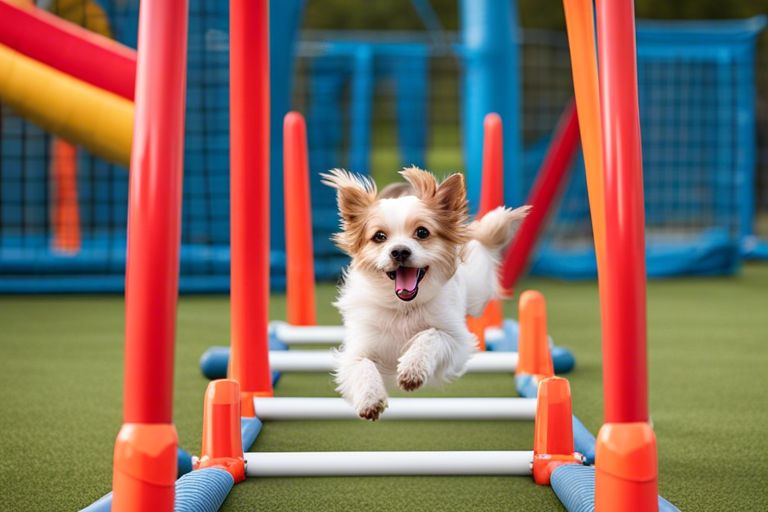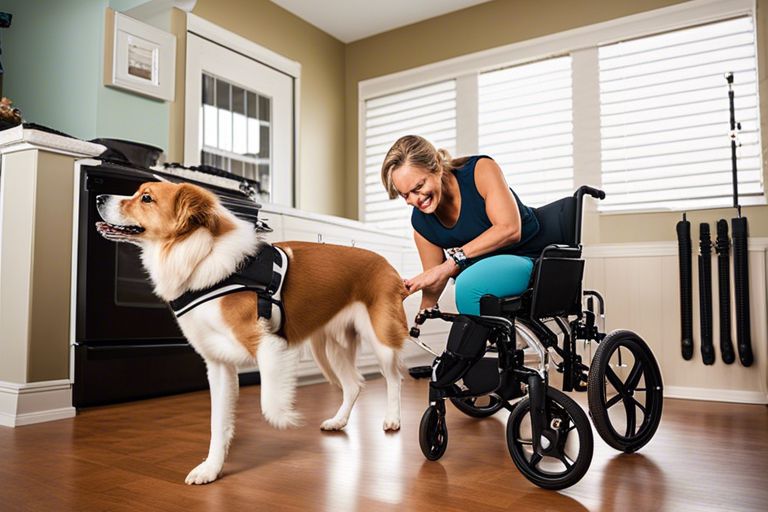As a dog enthusiast, I understand the importance of socializing small dogs from an early age. Socialization is crucial for your small dog’s mental and emotional well-being, as well as for their overall behavior around other animals and people. In this informative blog post, I will share with you some of the best ways to help your small dog become a more confident and well-adjusted companion. From puppy classes and play dates, to positive exposure to new environments and experiences, there are a variety of effective methods that can help your small dog develop strong social skills. I will also discuss the potential risks of not properly socializing your dog, and the positive impact it can have on their overall happiness and well-being. Join me as we navigate the world of small dog socialization together.
Key Takeaways:
- Start with positive experiences: Introduce your small dog to socializing in a positive, controlled environment, such as a puppy socialization class or a small playgroup with other dogs. This will help them build confidence and positive associations with interacting with other animals.
- Provide opportunities for supervised interaction: Plan regular playdates with calm, well-socialized dogs or take your small dog to dog-friendly parks where they can interact with other canines under your supervision. This will help them learn proper social cues and behavior around other dogs.
- Expose them to different environments: Take your small dog to various places, such as pet-friendly stores, outdoor cafes, or hiking trails, to help them become more accustomed to different sights, sounds, and smells, which can help them become more confident and adaptable in social situations.
Preparing for Socialization
While socializing your small dog can be a fun and rewarding experience, it’s important to take the time to properly prepare for the process. This means understanding your dog’s social needs and considering important factors that can influence the success of the socialization process.
Understanding Your Small Dog’s Social Needs
When it comes to socializing your small dog, it’s essential to understand their unique social needs. Small dogs often have different temperaments and behavior patterns compared to larger breeds. They may be more prone to fear and anxiety in social situations, as well as being more sensitive to stranger danger. Therefore, it’s crucial to approach socialization with patience and understanding, taking into account your dog’s individual personality and comfort level. It’s important to be mindful of your dog’s body language and behavior cues during socialization, as this will help you gauge their comfort level and make adjustments as needed.
Essential Pre-Socialization Considerations
Before diving into the socialization process, there are several essential factors to consider. Firstly, make sure your dog is in good physical health and up to date on vaccinations. Ensuring your dog’s health and wellness is crucial, as it will help prevent the spread of diseases and provide your dog with the best chance of having positive social interactions. Additionally, it’s important to consider your dog’s overall training and obedience level. A well-trained dog will be more likely to handle social situations with confidence and ease. Lastly, consider your dog’s past experiences and any potential trauma that may impact their ability to socialize. Being aware of your dog’s background will help you tailor the socialization process to their specific needs and potential triggers.
Step-by-Step Socialization Techniques
Assuming that you have a small dog that needs socialization, it’s essential to take a step-by-step approach to ensure their comfort and safety. Below, I’ll break down different techniques for socializing your small dog, including introducing them to new people, familiarizing them with other animals, and exposing them to different environments.
Introducing Your Dog to New People
When introducing your small dog to new people, it’s important to take it slow and ensure that the interaction is positive for your pet. Start by inviting friends or family members over to your home, allowing your dog to approach them at their own pace. Encourage gentle petting and positive reinforcement, and watch for signs of stress or discomfort. Gradually increase the exposure to new people, always keeping your dog’s comfort as the top priority.
Familiarizing Your Dog with Other Animals
If you want to familiarize your small dog with other animals, consider starting with controlled, supervised interactions with well-behaved pets. Always keep your dog on a leash during initial meetings, and watch for any signs of aggression or fear. Slowly increase exposure to other animals, always ensuring that interactions are positive and safe for your dog.
Exposure to Different Environments
Exposing your small dog to different environments is important for their socialization. Start with calm, low-stress environments, such as quiet parks or outdoor cafes. Gradually introduce your dog to busier, more stimulating environments, always monitoring their comfort level and providing positive reinforcement. Never force your dog into an environment where they feel anxious or threatened.
Common Challenges and Solutions
Your small dog may face a variety of challenges when socializing with other dogs and people. It’s important to be aware of these challenges and have effective solutions in place to ensure a positive socialization experience for your furry friend.
Overcoming Fear and Anxiety in Your Small Dog
If your small dog shows signs of fear or anxiety during socialization, it’s crucial to address these issues promptly. One effective way to help your dog overcome fear and anxiety is by slowly introducing them to new people and dogs in a controlled and positive environment. Gradual exposure, paired with positive reinforcement and rewards for calm behavior, can help build your dog’s confidence and reduce their anxiety over time. Additionally, seeking the guidance of a professional behaviorist or trainer can provide valuable insights and techniques to help your small dog overcome their fear and anxiety.
Dealing with Aggression or Overexcitement
If your small dog displays aggression or overexcitement during socialization, it’s essential to address these behaviors promptly to prevent any potential issues. First and foremost, consistency and clear communication are key in managing these behaviors. It’s important to set clear boundaries and rules for your dog during social interactions and reinforce positive behaviors through training and socialization exercises. Additionally, seeking guidance from a professional trainer or behaviorist can provide valuable strategies to address aggression or overexcitement in your small dog and ensure safe and positive socialization experiences.
Maintaining Socialization Throughout Your Dog’s Life
For small dogs, maintaining socialization throughout their lives is crucial to their overall well-being and behavior. Just like with puppies, it is important to continue exposing your small dog to new experiences, people, and other animals. This ongoing socialization will help prevent fear and aggression as they age, and will ensure that they remain well-adjusted and comfortable in various situations.
Continual Socialization Strategies
To maintain your small dog’s socialization, continue to expose them to new environments, experiences, and people on a regular basis. Take them on walks in different neighborhoods, visit dog-friendly stores, and attend dog-friendly events. Additionally, regular trips to the dog park or play dates with other well-behaved dogs can help keep your small dog socialized. For more tips on how to socialize a puppy, you can refer to this article on the AKC website.
Role of Training and Reinforcement
Training and reinforcement play a crucial role in maintaining your small dog’s socialization. Positive reinforcement training will help them develop good behavior and manners, making them more comfortable and well-behaved in social situations. Consistent training and positive reinforcement will also build their confidence and create a strong bond between you and your furry friend. Remember, consistency is key when it comes to training and reinforcing social behaviors in your small dog.

Conclusion
Ultimately, the best ways to socialize your small dog include exposing them to different environments, people, and dogs from a young age, enrolling them in obedience classes, and providing them with plenty of positive and controlled interactions with other animals. Remember to always approach socialization in a gradual and positive manner, avoiding any situations that may overwhelm or scare your dog. Consistency and patience are key when socializing your small dog, so be sure to dedicate time and effort to this important aspect of their development. By following these guidelines, you can help your small dog become well-adjusted and comfortable in a variety of social situations.
FAQ
Q: What are the best ways to socialize my small dog?
A: The best ways to socialize your small dog include enrolling them in obedience classes, scheduling playdates with other friendly dogs, and exposing them to various environments and experiences.
Q: Is it important to socialize my small dog?
A: Yes, socialization is crucial for small dogs to develop good behavior and confidence. It helps them to interact positively with other dogs, people, and new environments, reducing the risk of anxiety and aggression.
Q: How can I help my small dog overcome fear or shyness when socializing?
A: To help your small dog overcome fear or shyness, start by gradually exposing them to new experiences and environments. Use positive reinforcement, rewards, and calm reassurance to build their confidence. Consult with a professional dog trainer if needed.

